Why is marketing SO complicated? We’re kicking off our marketing series here on The Power in Purpose podcast with an episode that will simplify messaging AND marketing for you and reduce the overwhelm and exhaustion you might be feeling RIGHT NOW when it comes to marketing your business.
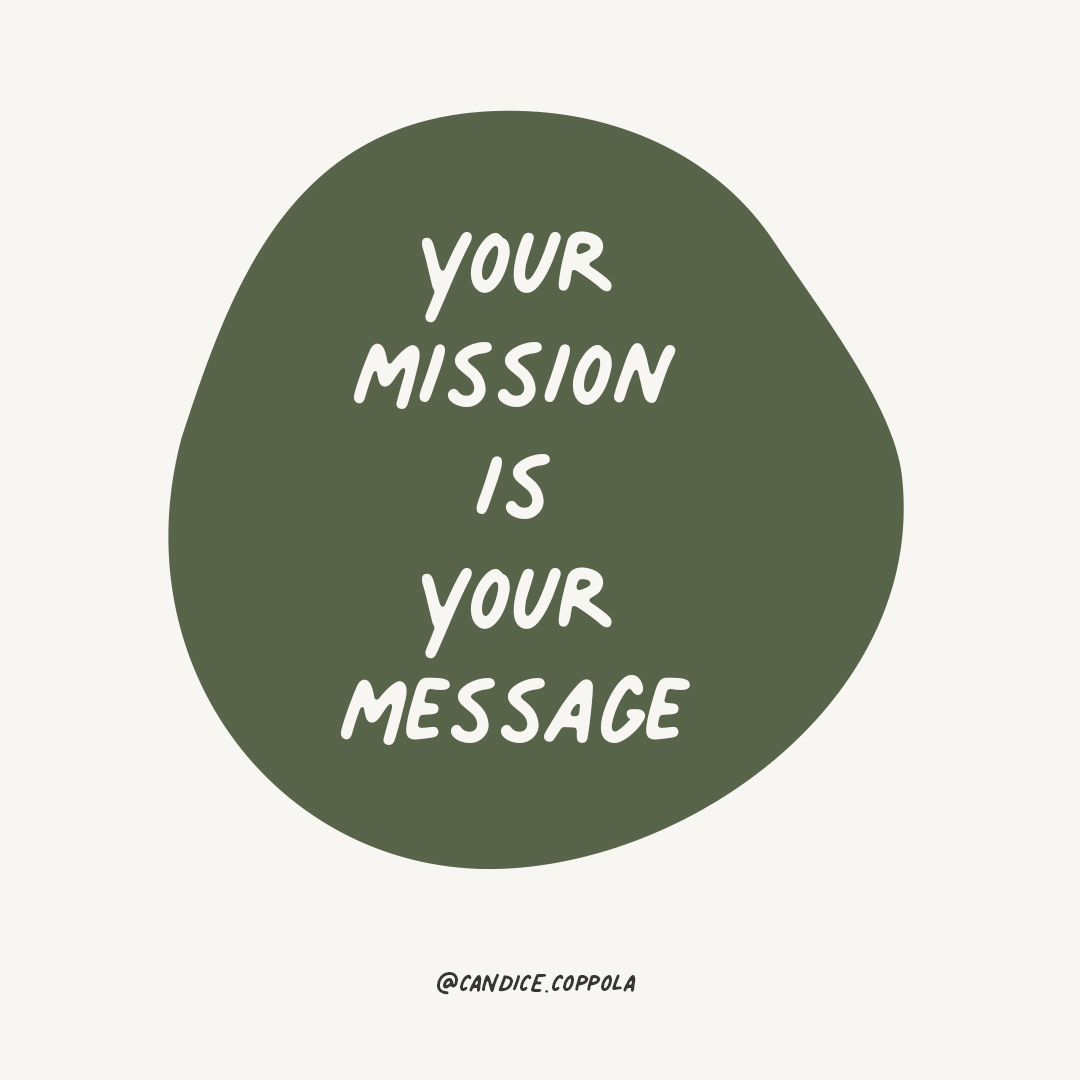
The episode of the podcast is part of our ongoing marketing series.
To listen to more episodes in our marketing series, click here.
Sounds so juicy, right?
We’re going on a journey to get to the root and core of what marketing is and where to begin to have effective messaging. How do you build a message that is true to you and your business, but also engages customers and draws them in simply by sharing your message?
This episode is in two parts: I want to lay the framework for what marketing truly is (and what it is not!) and then speak to you about how you can leverage the know/like/trust factor to help your customers buy–all with your message.
The Power in Purpose Podcast Marketing Series: Episode 1
- What is marketing – Instagram, blogging, Pinterest, emails?
- Building a mission and a vision statement
- The Know/Like/Trust Factor – a foundational sales style and principle
So do me a favor, grab a pen and your favorite notebook and get ready to learn how you can simplify your messaging strategy by discovering your core message, and how to turn cold leads into hot buyers with the know/like/trust factor.
Don't forget to download your free marketing workbook and begin to unlock your message.
We're kicking off our marketing series by asking the question, what the heck is marketing and can you ever master it? Why is marketing so dang complicated? In this first episode of our marketing series here on the Power and Purpose podcast, we're seeking to simplify marketing for you and reduce that overwhelm and exhaustion you might be feeling right now when it comes to marketing your business. It sounds so juicy, right? I'm sure you're ready to dig in to do me a favor, grab a pen and your favorite notebook and get ready to learn how you can simplify your marketing strategy by discovering your core message and how to turn cold leads into hot buyers with the know like trust factor.
You're here to grow a business, but not just any kind of business. You want to grow a profitable business with purpose, a business where you wake up every single day driven to serve your customers and make a difference in your own life. I'm Candice Coppola, published author, business coach and your guide to Building a Profitable Business with purpose. Join me here every single week as we explore how to build and grow your business with purpose. Get ready to dig in and have meaningful conversations about the strategies and techniques that will help you build your dream business.
This is the power in purpose. Welcome back to the Power and Purpose podcast. It's me, your host, Candice. And before we dive into today's episode, I wanted to make sure that you signed up for my free master class in this free master class. I teach you how to book out your business with more of the right people. Doesn't that sound dreamy? What if you could just make a few small tweaks to your marketing into your sales and achieve big results inside my master class?
I walk you through my four part formula for attracting more of your ideal clients and show you how you can book out your business with the right people. So go to CandiceCoppola.com/Quiz master class to register and learn more. That's Candice Coppola dot com slash master class to register. I want to share our sponsors for today's episode.
thanks so much to our sponsors for sponsoring today's episode of the Power and Purpose podcast. So here we are, our first episode in our marketing series over the next 90 days. We've got an incredible lineup of episodes for you. And I wanted to start this series by laying the groundwork for what marketing really is. I want you to think differently about marketing. And to do that, I want to simplify what it means and how you can approach this. So in today's episode, I'm teaching you some foundational marketing techniques, and I'm just trying to reduce that overwhelm that you feel when it comes to marketing.
And let's be honest, marketing is a huge topic, and it's likely that you do feel overwhelmed by marketing. You probably feel like you could spend, I don't know, every single day focused on marketing. And it still wouldn't be enough time to get what you need to get done. You might be spinning your wheels on applications all the time, making little headway or progress. And I truly believe that it does not have to be that way. This episode is in two parts.
Like Imentioned, I want to lay the framework for what marketing truly is and what it is not. And then I want to speak to you about how you can leverage the know, like and trust factor to help your customers by all with your marketing. Before we dive into both, I want to share two truths with you about business today. I feel like this really tees up the conversation and these truths relate to how you position yourself in your marketing and why it has to be all about your customers.
So the first truth I want to share with you is that the focus has shifted from companies to customers, which is why you need to shift your focus away from the what in the hows and start focusing on the why. Now, let me explain this a little bit more. For many, many years, marketing was really about the company or the product. And in marketing the position in advertising, they positioned the features of the product or the excellence of the company.
But that's changed and it's actually changed for quite a while now, many years. This isn't something new, but I feel like this may be new to some people. And so I want to reiterate that the focus has shifted from companies to customers, and that means that you have to shift your focus away from the features of your product and services and the awesomeness of you and all your accolades and all the things and really start focusing on the why why you exist.
Now, let's examine this for a second. I think it's important to pause here. Most companies can find themselves focusing their Y on why they started their company, especially solo entrepreneurs and those listening. So you have started your company for a variety of reasons that are very self centered. And that's totally fine and honestly very natural. It's very natural for you want to start your company for freedom, for abundance, to line your own pockets, to make your mark in this world, to give back to your meaningful life.
That's why we start businesses, but we also start them because we want to help people. And so this truth is telling you that while you have reasons for why you started your business, the why behind your business, why it exists to serve its customers, has to be centered around the customer. OK, and this leads me into the second truth. Your customers will connect with why you do what you do, why you started your business, but you also must center it around them.
Businesses exist to solve customers problems. That's why you're here. And yes, they also exist so that you can give back to your life. But when we talk about marketing and client interaction, when we talk about sales, you have to put your customer at the center of the story. Now, Donald Miller of A Story Brand talks about this, making your customer the hero of the story. That is exactly what I'm telling you here. And now instead of you being the hero of the story, you want your customer to be the hero of the story.
And trust me when I say when you create a why that's centered around why you serve your customers, that will attract them to you. And they will also connect to supporting you in your endeavors, in your business, why you started your business in the first place. Now, after we can make our marketing all about us. But this is truly a call for you to flip your messaging and make it less about you and more about your customer. Now, you're probably asking, OK, Candice, how do we do this?
And that's where we start in today's episode with part one. Simplifying your message. Now, first and foremost, marketing has been so overcomplicated by gurus and experts and those who want to sell you a quick trick or hack on Instagram, I must apologize on behalf of the industry you have now found myself in. Helping people and being an online marketer, quite frankly, I have to apologize that this has been so overcomplicated for you. But listen, over the next several weeks, I, too, will be sharing with you different tips, different tricks and different hacks to accelerate your marketing and bring in more customers.
But what marketing gurus don't tell you often enough is what marketing really is. So while these tips, tricks and hacks are great, they don't really tell you what the basis of marketing is and how these tips, tricks and hacks can leverage your message. So what is marketing? I think it's important to ask this question. Is it Instagram? Is it blogging? Is it jumping on stories and sharing parts of your day or tips about the work that you do?
Is that marketing? Is it pinning your work to Pinterest? Is it jumping on Facebook and doing a sharing a vulnerable story about yourself? Is it getting your work featured in a publication? Are those things marketing? I'm curious if you have considered Instagram and blogging and Pinterest and you know, all the different places actually marketing or do you see them for what they really are, which are vehicles? What do you think marketing is? I'm here to tell you that all of those things, Instagram, blogging stories, Pinterest, the the whole list is not marketing.
Those are vehicles of marketing their platforms to market on. But marketing itself is not those things. Marketing is simply sharing your message so that it attracts the right people. Your mission, your purpose. That is your message. Let me repeat this. Marketing is simply sharing your message so that it attracts the right people. It's not an Instagram post or caption. It's on a story. It's not a tick tock. It's not a real it's on a blog post or a podcast episode or all of those things.
Those are vehicles to share your message so that you can attract the right people, their platforms, their channels, their tools to share your message. But they're not marketing. So if marketing is simply sharing your message so that it attracts the right people, how do we do that? How do we figure out what our message is? Well, I also want you to know that marketing is a generous act. It's the generous act of helping others solve their problems.
Remember, businesses exist to solve the customer's problems. And marketing is the generous act of helping others solve their problems, of letting people know that you are over here. Hey, I'm over here and I can solve your problem if you hire me or you purchase my product. This problem that you're experiencing is solved. It goes away. So you're most generous and insightful. Work needs help finding the right people that it's meant to serve. And your most successful work, it will spread because you've designed it to in your marketing.
Now, when you look at marketing through the lens of spreading your message to help people, you see all the platforms of communication as simply a vehicle to spread your message. And later on in the series, I'm going to do a whole episode dedicated to narrowing down your platform so that your message really resonates. But I do want to say that you don't need to hang your hat on just one vehicle like Instagram or a podcast, and you don't need to do them all.
And in fact, you really shouldn't. You need to seek out platforms to communicate this message. Marketing is simply your message and work that link you to your ideal customer, their direct conduit to your best customers, because they use these platforms to communicate themselves. So if we know that marketing is simply sharing your message that it attracts the right people, how do we unlock your message, how we craft that message? I know that's your big question. I'm going to tell you that it's not easy.
It takes time. You want to not feel like it needs to be perfect in the first swing, in the first draft. And over time, you will see what your message truly is. But it's important that you get started. And this is where I really want you to take some notes because I have an exercise for you. So now that we know what marketing is and what it isn't, how do we craft this message? Will I believe that your mission is your message, your mission, why your company exists to serve the customers?
It does is your message. So what's your mission? It's why your company exists to serve those customers and how it solves their problems. So notice how your mission doesn't revolve around you and your desires. Remember, the focus has shifted from companies to customers, but rather it revolves around your customer and their desires. So how do we craft a really powerful mission statement? The first thing I want you to do is pause this episode. Head to CandiceCoppola.com/Marketing and download your mission statement checklist and workbook.
This is a big topic and I want to hold you accountable to do this, which is why I've taken the extra step to put together a resource that will help you to craft your message, your mission. So go to CandiceCoppola.com/marketing to download your checklist and workbook. That's going to help you do this. And I hope to be able to offer resources throughout the whole season like this one. But listen up. I'm going to walk you through this step by step.
It is simple in theory, but it will take you some time and some iterations of answering these questions to find something that sits right with your spirit and that also serves your customers. So I want you to sit with these four questions. The first is, what do we do? What is it that your company does? And then the next is how do we do it? So you know what it is that you do, but how do you do that?
How do you do that thing, whether you are coaching your coaching women, whether you're a wedding planner and you're serving your customers, whether you're a brand photographer or station or calligrapher, we can go through the whole wonderful list of listeners who listen to the podcast. How do you do whatever it is that you do? The third question, who do we do it for? So who are the customers that you are here to serve? And then the final question is kind of two parts.
What value are you bringing and what problems are we solving? What value are you bringing to those customers and what problems are you solving? So sit with these questions. It's going to take some time, but this is real heart work. And I promise you, when you do this, things start to dramatically change. I've seen it with the women inside my master mind. It's not easy. You're going to feel like a fool at some point because you don't know how to answer these questions.
My inbox is always open. I'm always here to help you. And we will be having this conversation on clubhouse 2:00 p.m. this Thursday, Eastern Standard Time. So please do join us if you get stuck, but you likely will get stuck. This is hard to really think about, to verbalize, to vocalize. But the more you can sit with these questions and ask these questions of yourself, the more the answers will reveal itself. What do we do?
How do we do it? How do we do it? For what value are you bringing and what problems are resolving? Now, the answer to these questions is the basis for your mission statement. You're going to ask me Candice, how long does a mission statement need to be? It can be as long as you want it to be, but I really think a reasonable paragraph is good. So three to four sentences, maybe five, is plenty.
A mission statement should not be pages and pages. One of my favorite quotes from Donald Miller is. If you confuse, you lose, so the more you got going on in this mission statement, the more confusing it will become. But when you answer these questions, I want you to feel free to not put a word limit on the answers to these questions. Answer them as best as you can, as much as you would like. Describe a detailed let words flow from your mind, in your heart to answer these questions.
And then what you've got to do is look at these questions and start creating a mission statement. How can you summarize what you've written, the answers to these questions in a powerful mission statement for your company? Now, you can also go a step further and write what I call a vision statement. And a vision statement clearly defines what life is like once you solve your customers problems. It's the transformation they have because of your services or product. So inside of your workbook and checklist at CandiceCoppola.com/Quiz Marketing, I also help you work through this specific exercise.
And in order to write a vision statement for your customers, I have three questions that you can answer and this might come to you more readily. So do this first. If you feel inspired here, feel like you can answer these questions more readily. The first is what problem does my company solve for its customers? What problem are you solving? You exist to solve problems. What are those problems? Why do we believe this problem or these problems need to be solved?
And then finally, what does life look like for our customers after we've solved their problem? What does life look like for your customers after you've solved their problem? Paint a picture, tell a story, put yourself in the customer's shoes after the problem has been solved. What is life like for them? Be descriptive, go all out here, describe what life is like for them, either a scenario, a moment or how they feel or how they're able to move on from one place to the next to have that transformation.
You promise that transformation your products and services give your customers. So what does life look like for your customers after you've solved their problem? Now, as these answers start to take shape, you will start to create a vision statement which clearly defines what life will be like once you solve your customers problems. This is a powerful statement. Powerful, powerful, powerful, powerful. It is what your customers are buying. They're not buying are the features of your course and the six modules they're not buying, you know, R.S.V.P. management.
If you're a wedding planner, they're not buying those things and use an example that relates to your own industry for yourself. They're actually buying what life is like for them after you solve their problems. And so you can position your vision statement in your marketing as part of your mission statement. It is so incredibly powerful. And really, when you think about how people purchase and what they're really buying, like Seth Godin says, people don't buy paint, they buy painted walls.
Your vision statement is that painted wall. So we know that marketing is simply sharing your message that it reaches the right people. We've established how to start crafting a powerful mission statement. Your mission is your message and also a vision statement. What life is like for your customers after you solve their problems. I want you to experiment and what you're really sit down and do this, and I want you to experiment in your marketing with whatever has come out through this exercise.
Whatever has come from pen and paper. I want you to experiment. And there are a few ways that you can do this today or tomorrow whenever you're able to do this exercise with putting your purpose, your mission at the forefront of all of your marketing, but also in your sales process in other ways. So I've got four things that you can do today and tomorrow to experiment with this message, make sure that it appears in various touch points that a customer or a lead has with your business.
So make sure that it's on your website. Make sure it's on your contact page. Make sure it's embedded in an automatic responder email. Put it in the places where your customer connects with you, OK, before they purchase and make sure it's featured on your sales pages, your brochures and any material you send to a customer before they decide to work with you, people don't necessarily read. So you've got to make sure this message is every single place you could possibly be so that it sticks.
Speak it out loud in your consultations. If you get unclarity calls or consultation calls, even Indians speak your mission out loud. Let your customer know the transformation that you provide and why you exist to serve them in the problems that you solve. And I also want you to thread the needle. All your marketing with this message, you can say it in different ways, you can experiment, but make sure that it all leads back to the same message, what you do, how you do it, who you serve and the value you bring along with the problems that you solve.
So now we jump into the second part of this episode, and that is the new like and trust factor. We've established that your marketing is simply sharing your message that it reaches the right people. Your mission is your message. You may have heard of this term knocking around and for really good reason. They know, like and trust factor is one of those foundational marketing styles and principles that just never goes out of style. And it's been around forever.
So just in case you're not familiar with this term, I want to give you a crash course on what they know, like trust factor is and how you can leverage it in your marketing. If you're familiar with this, please still hang out here with me because you might learn something new from my perspective of the know like trust factor. So here's the deal. The client attraction process from awareness to booking looks a lot like dating, don't you think?
I mean, it really follows very similar formats. There's a there's a having to know you and then liking you and then trusting you enough to go out on a second date or continue the relationship. And so when we use this analogy of dating in the client attraction process and the booking process and marketing and sales, we can see how they know, like trust factor really plays a role. So we're going to break this down into three parts and we're going to start with no what does no mean for your ideal clients to purchase from you?
They first have to know about you. This is kind of obvious, but I don't think that we really give this the credit it deserves. People have to know about you. And this is where marketing and advertising and brand awareness comes in. So every single person listening to this episode, yes, you have a sales funnel. And at the very top of that sales funnel is attraction. How you're attracting people into your funnel, into your orbit. Your marketing helps to attract people into your sales funnel, which means they know you exist, whether they search a keyword on Google, they're on Pinterest and they see something interesting.
They click whether they discover you from another account that tagged you or geotag on Instagram, whether they just stumble across you somehow some way in order for them to ever buy from you, they have to know you. No one will ever buy from you unless they know you. No one will ever date you unless they know you. And so this is a really critical component of this marketing strategy. Now, over the next series of weeks, we're going to be talking about some ways you can get people to know you.
So stay tuned. Some of these episodes are focused more on how to raise awareness and get people into the top of your funnel. But in order for people to ever purchase from you, they have to know you first. Now, let's move on to like no one buys from somebody they don't like and nobody goes out on a second date with somebody they don't like facts. So if you want somebody to hire or buy from you, they have to like you, OK?
They have to genuinely like you. And, you know, this is a place where people get hung up, especially my people pleaser friends or my friends who want everybody to like them. I think as human beings, we are sort of programmed to have this desire to be liked by everyone. And so when we talk about the like factor, this is not trying to appeal to every single person on the planet. This is about appealing to your people.
OK, and there's also this idea that people will like you and some people won't. And trust me when I tell you that it is good that you are attracting and then also repelling people through the like factor. Not everybody is going to like you. And that's OK. Trust me. I wish I could go back and tell my 20 year old self this, but my thirty nine year old self truly believes this and knows this to be true. OK, so the like factor means that in order for somebody to purchase from you, they have to like you.
And this is not for you to do everything in your power to make everybody like you. Instead, what I really want you to do is just be yourself, your authentic, vulnerable, funny, humorous, likeable self. You I just want you to be you. And in being you, they're going to be some people who come along and say, I'm not my GM. Doesn't mean you're a bad person, doesn't mean anything about you. It just means they're not connected to you.
So they go on their merry way. That's actually a favor to you, OK? And they're going to be a group of other people who come into your orbit and they're going to like you. They're going to like your future. They're going to like your quirks and your fun personality traits, your hobbies, all the things that make you you the. Wonderful, well-rounded person. Now, in order to get people to like you, or at least in order to accelerate the like, you have to create connection points with your audience.
And this is where you get to just show up and be yourself, unequivocally, unapologetically you your values, your beliefs, your opinions, your silly dad jokes like whatever it is that make you up. This is a call to arms for you to rise up, embrace who you are and who you're becoming and how you're changing, where you've come from and where you're going and share all of that with your audience as much as you feel comfortable doing. It's important that we share parts of ourselves, we feel comfortable and we try to create connection points with our audience.
Now, you can do this simply by sharing more personal things on the channels or the vehicles where you spread your message. So it doesn't always have to be about selling and marketing, but it can be about your plans. Like me, I'm a plant mom. And so I love sharing my plants. I love sharing things about my life, home decor, how I decorate my house, my dogs, my husband, the island life. Those are all things that I like to share because they make me who I am and my audience likes it.
The ones who stick around at least, and the people who come by cruzi and don't like my opinions or have different values or beliefs than I do, can just keep cruising and they can go like somebody else. And so I say all this because it's important for you to find spaces and places where you can open up and allow people to get to know you. People want to buy from people and not just businesses. And this is an opportunity for you to share parts of yourself with your audience that will give them the option to hit the like button or the unfollow button, quite frankly.
So now that we've explored no. And like, how do we get to trust? Trust is the most critical part of this whole entire funnel. Not everybody will make it here. They will not make it to trust. Trust is earned over time. And for some potential customers, they could immediately trust you based on what they see and read. But for most people, it does take time for you to earn their trust. And in your marketing, I think it's important to make sure that you're building into your marketing, into your conversations, ways that your audience knows that they can trust you through authenticity, through vulnerability, but most importantly, through consistency.
So I truly believe that trust is earned over time and it is often earned through the consistency of showing up and being a person who shows up consistently with a consistent message with consistent values and beliefs and who just doesn't retreat or hide, who's not changing their mind a hundred different times a day, who's not flipping around their career from being coach to author to. Now I'm a wedding planner and now I'm a photographer, and now I'm a marketing guru who is consistent, who's consistent in their beliefs and their message that consistency so helps to build trust with your audience consistently showing up for them, helping them, nurturing them, giving them resources, advice and tools will all help to bring someone into the trust portion of this conversation.
And when somebody trusts you once they really trust that you're the expert, that they can trust your expertise and what you're selling, they're primed to become a customer because without trust, nobody's ever going to purchase from you. And like I mentioned, there are early adopters, people who may just instantly have a connection with you. Your energy wavelengths are right on point. They may trust you quicker than others, but for most people, it takes dating them, it takes nurturing them.
It takes consistency and showing up for them to break down those walls and invite them into your life to trust you enough to purchase something from you. So I wanted to walk you through the know, like and trust factor because this is such a critical component of marketing. I want you to break into your marketing strategy over the next 90 days as we work together to figure out what vehicles you should show up on, how you should leverage those things, where you should share your message.
I want you to bake into all of this the know, like and trust factor. Every time you market your business, every time you get a new idea to do something new. I want you to walk through this foundational marketing principle and make sure that you are leading people to know you and that you. We are sharing more about yourself so that you can create connections so that people can like you and that you're showing up consistently so that you can earn the trust of your customers.
That concludes our very first episode inside the marketing series. It was a big episode. I have to admit, I might have bitten off a little more than I could do. Let me look at the time. It was a big episode, but really well worth it. I want to remind you about my free master class CandiceCoppola.com/Quiz master class. And I also want to encourage you to download your marketing workbook and checklist. I created this resource for you because I don't want you to just listen to this episode and never do what I'm telling you to do.
And I know sometimes you just need to kick in the pants a free download to get the get the juices going. So download your free marketing plan and workbook. And on a final note, join me on clubhouse every Thursday at 2:00 pm Eastern Standard Time, where we take the topic of this week's episode and have a live roundtable discussion. So I want you to join me this Thursday, 2:00 p.m. Eastern on Clubhouse. Come and connect with me and other listeners as we support one another to build a profitable business with purpose.
Make sure that you're signed up for the clubhouse app. Follow me at Candice Coppola to join. You'll get an alert when we're ready to go. I'm so excited to connect with you over on clubhouse and continue this conversation and get some life coaching. You can ask questions. If you have something to add to the conversation, bring it. If you have something you want to share an experience or your own knowledge and expertise, we want to hear from you.
So I can't wait to connect with you this Thursday on clubhouse. Thank you so much for listening to today's episode. It is always a joy and a pleasure and an honor to serve you here on the podcast. And I'm here to remind you, as I always try to do, there is so much power in your purpose.
Thanks so much for tuning in to this week's episode of the Power and Purpose podcast. If you enjoy the show, be sure to subscribe so you never miss an episode and consider leaving a review head over to Power and Purpose podcast Dotcom to access all of the resources and links mentioned in today's episode. That's Power and Purpose podcast Dotcom.
I'll see you next time.
Sign up to receive email updates
Enter your name and email address below and I'll send you periodic updates about the podcast.
Explore More Wedding Industry Resources
- Everything You Need To Know About Blogging in 2021 With Vanessa Hicks
- How to Create An Automated Email Marketing Funnel That Sells With A Nurture Sequence
- 5 Instagram Marketing Trends You Need To Know In 2021
- Why You’re Not Attracting The Right Clients and How to Fix It
- How To Use Email Marketing As A Wedding Pro – Step-by-Step Guide
- How to Start a Wedding Planning Business
- 5 Ways To Use The Clubhouse App As Entrepreneur







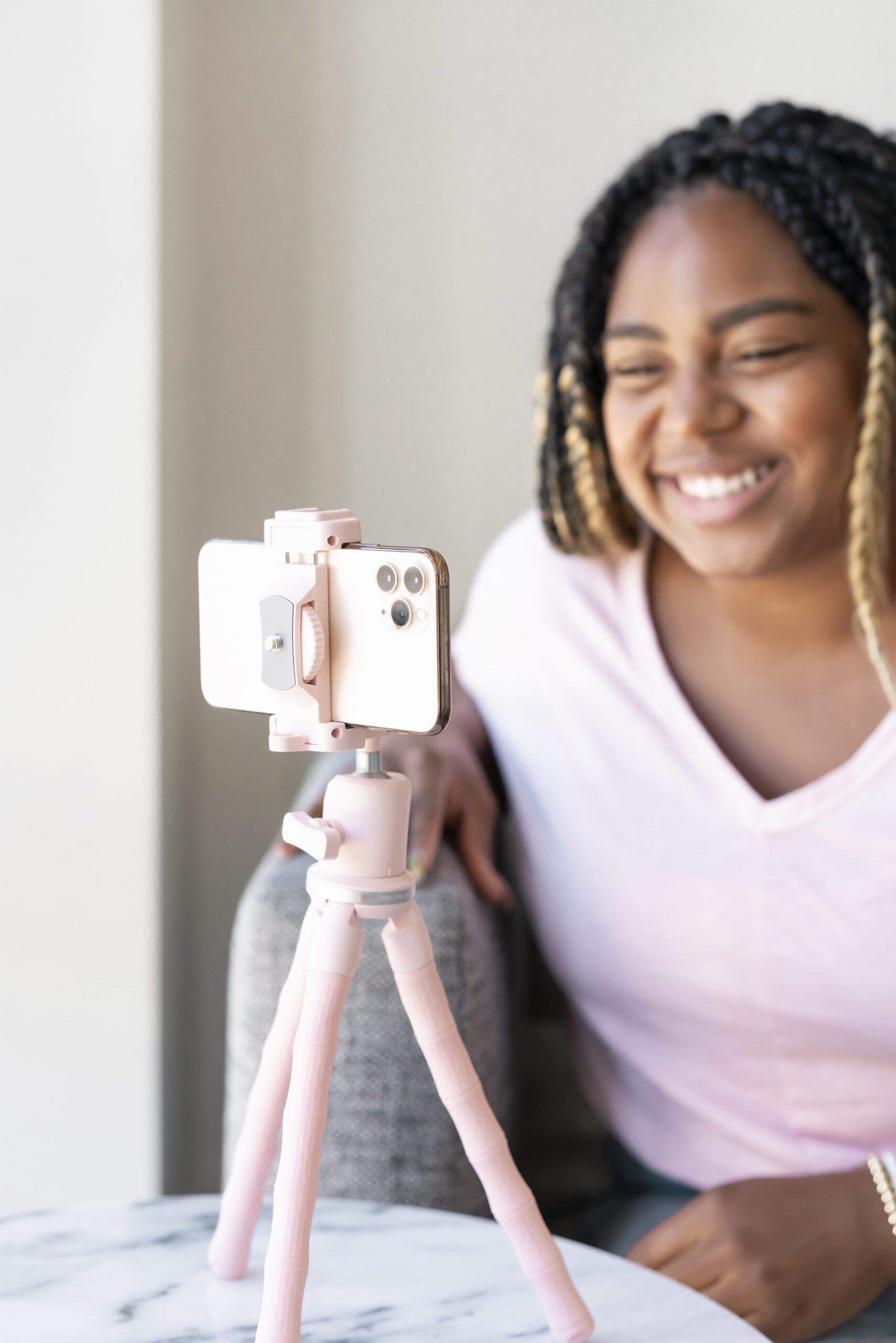
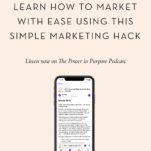
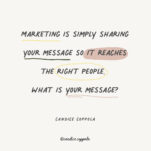
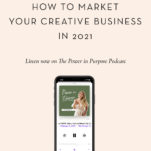
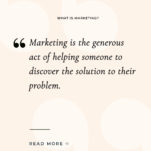
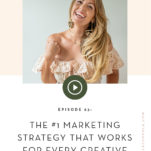
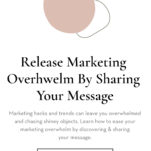
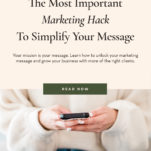
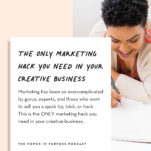
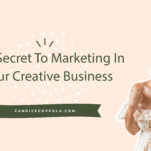
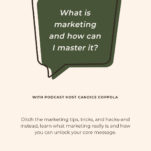
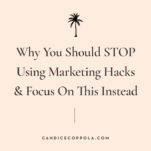
+ show Comments
- Hide Comments
add a comment